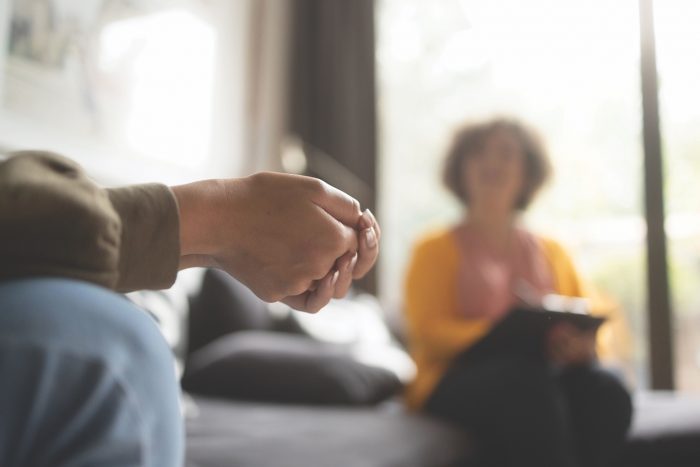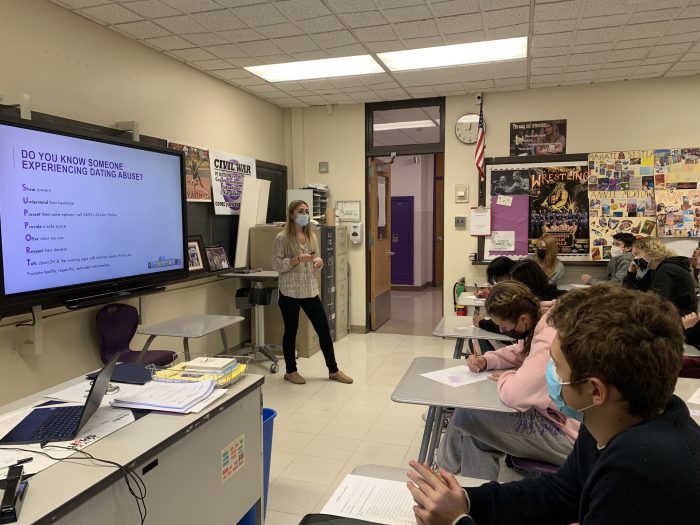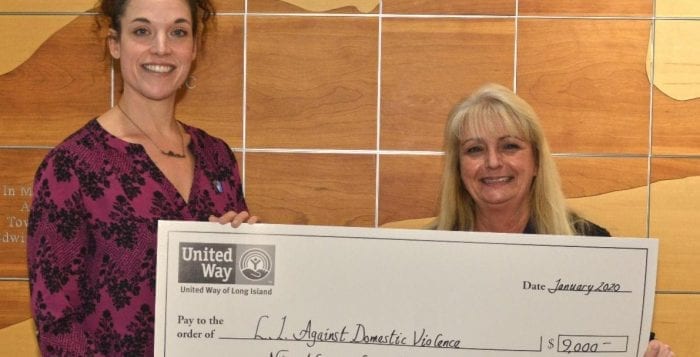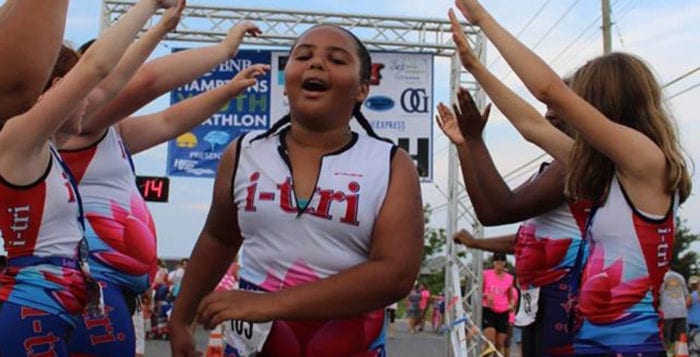By Daniel Dunaief
The murders last week of Kelly Coppola and her boyfriend Kenneth Pohlman in St. James were the nightmare every supporter of victims of domestic violence works hard to prevent.
After prosecutors charged Daniel Coppola, Kelly’s ex-husband, with two counts of murder, police reportedly shared that the family had one domestic incident from when the couple was married.

Domestic violence is “an ongoing problem and an ongoing public health issue,” said Kathleen Monahan, associate professor in the School of Social Welfare at Stony Brook University. “When you’re talking about 30 percent of the female population being battered at least once during their lifetime, you’re talking about a really big problem.”
After the murders, agencies on Long Island that work steadily to avoid such a horrific outcome “kick into high gear” and “try to mobilize women that we think are in real danger,” Monahan added.
Women aren’t the only ones exposed to domestic violence, as children sometimes see it directly or hear it while they are hiding in another room. Recent estimates suggest that between 3.3 million and 10 million children are exposed to domestic violence each year, according to the Domestic Violence Services Network.
In the St. James homicides, Coppola told his 15-year-old daughter to wait in the car while he allegedly committed the murders.
Indeed, while the vast majority of these violent incidents don’t result in death, they do present an untenable situation for victims, some of whom receive ongoing verbal, emotional, financial and physical abuse in the course of an unhealthy relationship.
Abusers sometimes break down their victims, criticizing them and damaging their ego, while getting them to question their judgment or mental abilities.
Domestic violence is often about “power and control,” said Wendy Linsalata, Executive Director at L.I. Against Domestic Violence. “Any time a survivor is working to take back the power and control over their life, [the abuser] feels the anger increase” as does the danger.
L.I. Against Domestic Violence offers a 24-hour confidential hotline, 631-666-8833, that people who are struggling with domestic violence can call for help.
“If something doesn’t feel right to you, follow your instincts,” urged Linsalata. “As minor as it is, reach out to us. You’re not wasting our time. We won’t judge what you’re feeling or thinking.”
Linsalata suggested that domestic violence is not primarily or exclusively caused by alcohol or mental health problems that affect the abuser.
Research has demonstrated that taking away alcohol from an abuser doesn’t prevent their inappropriate and unwelcome behaviors, Monahan noted.
To be sure, alcohol can remove inhibitions, which exacerbates abusive behaviors.
Mental health problems can also lead people to act violently or inappropriately.
“Can mental health contribute? Sure, but is it the all-out case? No,” Linsalata said.
Prevalent problem
Advocates for domestic violence victims urged people to recognize a pervasive problem in their interactions with someone who is abusive.
“This can happen to anyone at any time, regardless of their socioeconomic status, their race, ethnicity, gender, sexual identify, or sexual orientation,” Linsalata said. “This happens across the board.”
Abusive behavior often starts early in a relationship and can appear to involve paying close attention.
When someone needs to know where their partner is at every hour, needs to check their partner’s phone and wants to monitor their partner’s communications or connections, they may be seeking to exert excessive control.
How to help
Advocates offered advice about how friends and family can help others who may be living with domestic abuse.
“If [someone] discloses something to you, please believe them,” said Linsalata. Their partners can seem friendly, personable and charming, but they may, and often are, completely different when they are alone with their domestic partners or families.
“Let them know you’re a safe person to talk to,” said Alberta Rubin, Senior Director of Client Services at Safe Center Long Island. “You’re not going to push them to do something. You want to be there for them.”
Linsalata urged people to recognize that the violence or abuse is “never the fault of the victim” and the “onus is on the person making the choice to abuse them.”
Residents or family members can also call the L.I. Against Domestic Violence hotline for tips on how to start the conversation with those they believe need help.
“Don’t tell them what to do or say, ‘I wouldn’t stay for that’ or ‘I would go to court and get an order of protection,’” Linsalata suggested.
If she noticed a family member was struggling in a relationship, Monahan would express her concern and ask how she can help.
Professionally, she’d let a survivor know that he or she could be in danger and can receive support from organizations on Long Island or from therapists.
Preventing abuse
Groups throughout Long Island have been working to help students understand the need to respect boundaries and to avoid becoming abusers or predators.

Laura Ahearn, Executive Director of The Crime Victims Center, highlighted the “Enough is Enough” program which she said Gov. Kathy Hochul (D) spearheaded to prevent relationship violence and sexual assault on campuses in New York.
Efforts at preventing these kinds of abusive relationships have started in middle schools as well, as students learn about healthy boundaries.
Monahan suggested that people don’t start out life as abusers.
“How do you take this beautiful looking baby and put him or her on a pathway to destruction?” she asked. Amid other contributing factors, all the different ways a child is traumatized during “crucial developmental stages can make them angry and without the essential tools to navigate in society.”
Victims advocates point to the importance of an Extreme Risk Protection Order, which prevents people who are thinking about harming themselves or others from purchasing firearms.
“We don’t want to infringe on anyone’s rights,” said Linsalata. “We want to keep people safe.”
Ultimately, advocates urged people to consider the slippery slope of harmful behavior, even from family members or from those they love.
“In the field, we have a saying that, ‘if he hits you once, that’s not going to be the end of it,’” said Monahan. “If he crossed over that line” he could and likely will do it again.








